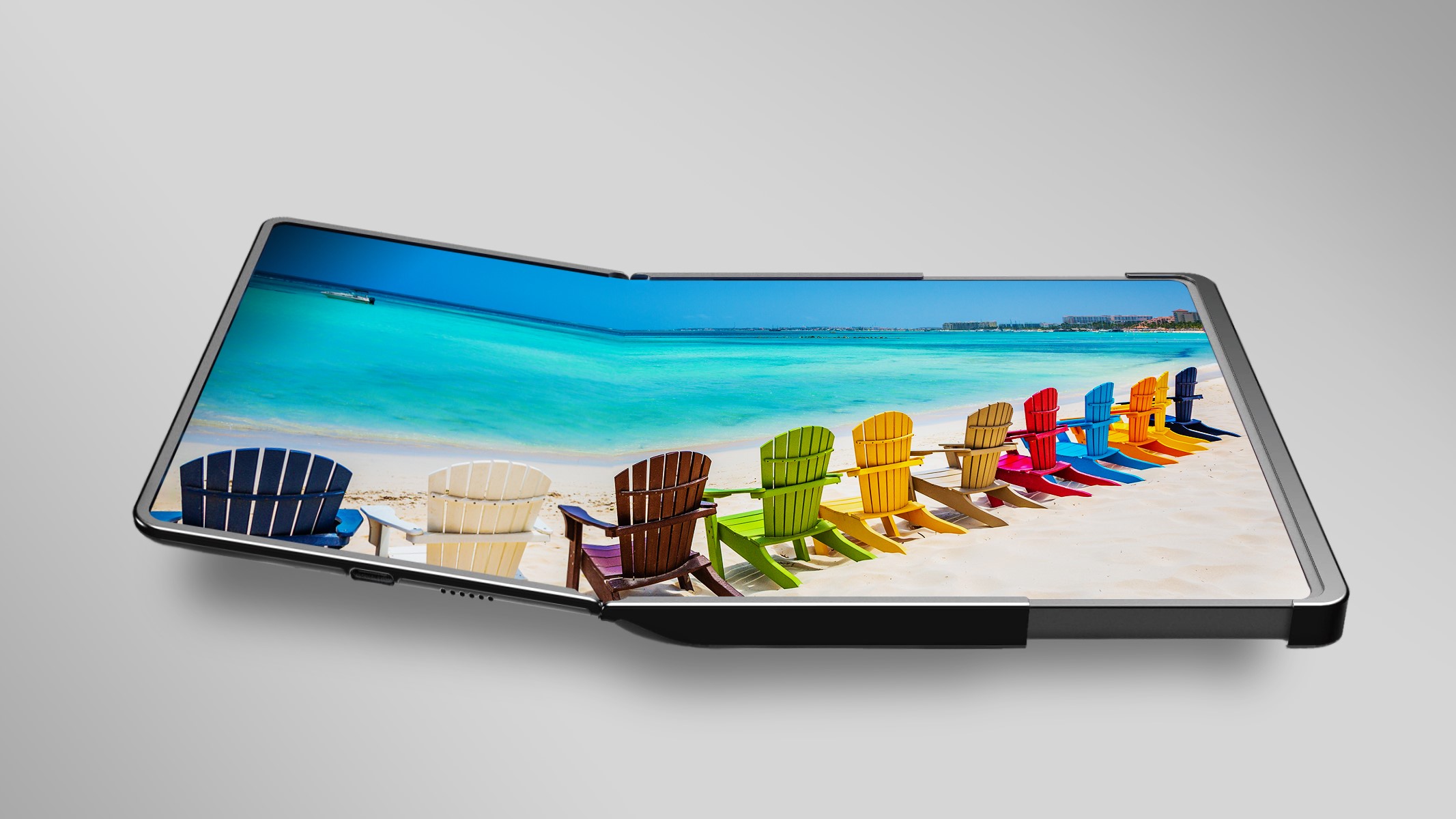
Samsung has patented a rollable display that could be used in future phones and TVs.
The rollable display could be a large screen that can be rolled away when not in use.
Samsung could be planning to shake-up the display industry with flexible displays after a patent was uncovered showing how a rollable display would work.
Spotted by MySmartPrice, the patent shows not just the structure of the mechanism, but how it might live in its housing. The patent is reminiscent of the LG Signature TV R, a 65-inch rollable television that was unveiled in 2019.
Flexible displays are nothing new and the likes of Samsung and LG have been toying with different applications for flexible displays for some time - like the Samsung Flex Hybrid shown off in 2023. OLED is inherently flexible in its natural form, it's only the application of a protective glass layer that gives it its rigidity. Remember those Samsung Galaxy phones with curved edges? That's because the display layer itself can be flexed.
What's missing from the patent is any sort of scale. We don't know if this is a rollable you put into your pocket - in which case you can forget about the Samsung Galaxy Z Fold 6, because you'll have a phone that can expand the display size to be whatever you want.
LG Display has shown off similar smartphone concepts that will offer an expandable display based on a rolling OLED design, but whether Samsung is going to be targeting the smartphone market with this patent remains unclear.
I suspect this is for a larger display like a television, which would have the advantage of letting you roll it away when you didn't need it, deploying it for movie night. In much the same way that people use projector screens, perhaps this would be a solution to give a premium display when you need it, rather than it being permanently in place.
Patents need to be treated with caution, however, as they are rarely an indicator of a final product. Instead they tend to be an indication of the work towards a new format of product. We know that OLED panels are flexible and can be used in more diverse ways than they currently are, but transforming that ability into a viable product is a different question.







